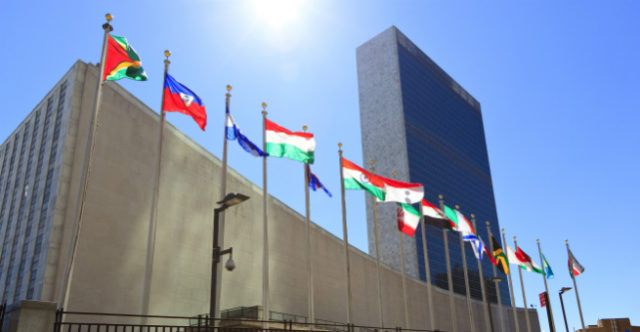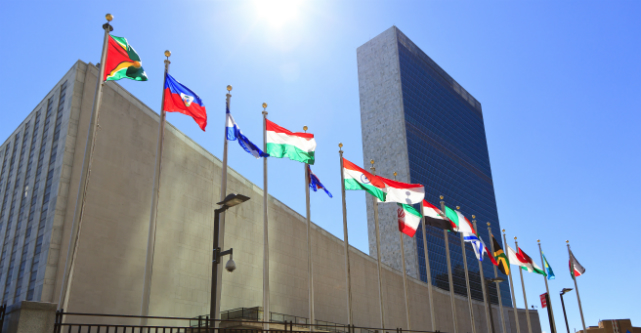Brisbane entrepreneur Chris Eigeland addresses the United Nations: How to unlock the potential of young people around the world – StartupSmart

This is an edited version of a speech that GO1 co-founder and Brisbane entrepreneur Chris Eigeland delivered to the United Nations General Assembly on October 5 as the Australian youth representative.
There is an opportunity in front of us to unlock the potential in young people all around the world — turning the “youth bulge” into a demographic dividend that delivers tangible economic and development progress.
Over the past six months I have travelled over 45,000 kilometres, meeting thousands of young Australians from all walks of life. And the overwhelming message is one of confidence, but at this crucial moment this confidence is tempered by fear. In particular, fear of economic disruption and inequality.
But this is also a moment where, if we mobilise the billions of young people globally, we stand a genuine chance at achieving the 2030 Agenda for Sustainable Development.
For many, inequality is driven by unemployment or underemployment. The exclusion of groups from the labour market threatens long-term stability, and breeds tension. The unemployment rate for young Australians is twice the general unemployment.
Globally, over 40% of the world’s youth are beneath the poverty line, whether they are employed or not. Even in OECD nations, a youth unemployment rate of over 15% persists.
The unemployment rate is driven by faltering economies, labour market transitions, and underemployment that forces those with less experience out of contention.
I have heard from over 10,000 young Australians and in one voice they say “we want to be, and we must be part of the solution”. More than 80% of young Australians believe that they have a duty to change the world for the better — not just a desire, a duty. And that duty is manifesting in self-created employment, enterprises and organisations.
The starting point always must be inclusive, relevant and quality education – a task that no longer is solely the realm of government thanks to shifting technology landscapes.
Inequitable education outcomes that continue to pervade Australia, largely due to geographic and socio-economic status, must become a relic of the past.
This year, I was part of a startup team that brought together tens of thousands of educational content pieces from around the world, to deliver professional development in one place, accessible from anywhere in Australia.
I also met a team of young Australians that built a homemade tablet computer, and are using it to provide affordable access to basic primary education in regional areas. The education development pathway can, and should, leap frog to the latest innovations to improve relevance and accessibility.
We can do this by creating decision making structures that include a generation of problem solvers. Less than 5% of the young Australians that I met believed that they were being represented and included in the decisions that affect them. This isn’t isolated to Australia, young people globally possessing a global outlook, and the potential to contribute tremendously to the challenges set in the 2030 Agenda.
It is 2016. It is beyond time that we have an inclusive community that realises the opportunity in equal gender representation in industry, in government, and in advocacy.
Less than 25% of director positions in Australia’s largest 200 companies and only 30% of our seats in federal parliament are filled by women.
The change we must see in this space begins at the grassroots level and there is more to be done to ensure our policy frameworks create incentives for women to participate in their societies and that men are able to share in the unpaid care work for their families.
The current generation of young Australians have voiced their opinion in the strongest terms — they do not want to be 40 years old and admitting to the next generation that we failed to build an inclusive economic agenda.
To implement the 2030 Agenda in the spirit it was agreed, we need to be truly inclusive and to provide equal opportunity for young women, LGBTI youth, migrants and asylum seekers, and indigenous youth, to engage them in the decision making process, and make them part of the practical solution.
As much as the United Nations and national governments can do, and should do, ultimately it is on the shoulders of young people around the world.
As the 2030 Agenda for Sustainable Development states, “it lies in the hands of today’s younger generation who will pass the torch to future generations”.
Follow StartupSmart on Facebook, Twitter, LinkedIn.

